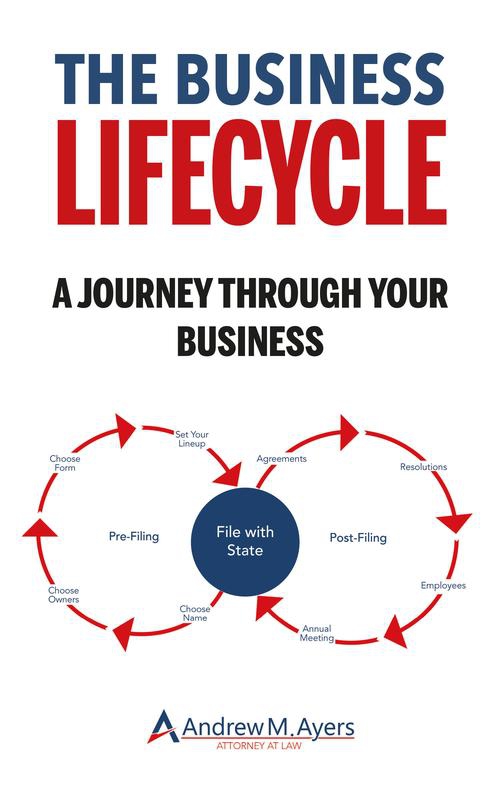 One of the first major questions you face as a business owner when it's time to incorporate your business is: What type of legal entity should you choose for your business?
One of the first major questions you face as a business owner when it's time to incorporate your business is: What type of legal entity should you choose for your business?
This will usually come up either at the very beginning before you start a business, or right after you started your business and you're looking at the next steps. It's very important at this step to talk to your accountant and talk to your attorney to make sure you're making the right choice and getting the right advice on what is the next step. For many people, they start their business as a sole proprietorship (they don't formally incorporate their business). But as they continue to grow, as their needs become more complex, they need to decide between remaining a sole proprietorship or incorporating their business.
What is the correct legal entity?
There are six main categories of entities that I commonly work with clients on:
- Sole proprietorship ~ If you're just starting a business, you don't want to incorporate it, you're a sole proprietorship. Now there's a big benefit because there are no extra filings and there's a lot less paperwork, but you're also missing out on the tax benefits that you could be receiving from incorporating a business.
- Partnerships ~ This is when you're working with others who will also be the owners of your company. We can have a general partnership where we're just working with other people. We can have a limited liability partnership, which just as it sounds like, limits the liability of the partners. We can have a limited partnership, meaning the partners only have certain fiduciary duties to each other, and we have a family limited partnership, where we have a limited partnership that is composed of family members.
- Corporation ~ There are two types of corporations you commonly read about, although one is not really a corporation. The first is a C corporation. This is a traditional corporation that most companies would elect. The second is what's called an S Corporation, which is not a separate type of corporation. But it's a tax election. Now many LLCs use the S corp election, but this is where it's important to talk to your accountant to make sure the S corp election works best for you and what your business goals are.
- LLC ~ There are different requirements for each state for an LLC. So you want to check what those requirements are in your state. For example, in New York, there's a publication requirement which means after you form your LLC, you've got to file it in the county where it's located. If you're in Manhattan, that can be a very large expense. If you and your partners in the LLC are going to be licensed, you can also create a PLLC, a Professional Limited Liability Company, and that is for things like attorneys, doctors, and lawyers, but again, that's not available in every state.
- Business Trust ~ What that is, is a business will actually be owned by a trust. So usually it's going to be an individual owner, owning a business transferring that business into their trust. It's a great vehicle for estate planning, but it's a little more advanced technique that you don't want to just try on your own.
- Professional Corporations ~ These are when you have people who are licensed, like doctors, lawyers, and engineers, these are special kinds of companies for people with licenses. So if you're in that category, it's especially important to work with professionals to make sure you're setting up the right kind of company.
Between the six categories, you have a lot of choices for your corporate form. A blog post can give you some information, but this is where the professional advisors will come in to say "An LLC is right for you." Or maybe they will look at your finances and suggest "Let's put that business into a trust."
Next Steps
So instead of just going to a website and trying to download business documents, take some time, meet with an attorney, and meet with your accountant to make sure you're setting up the right company for you. If you're not sure where to get started, we can set up a Legal Strategy Session. We can set up a 15 or 20-minute phone call to discuss where your company is in this process and what are some of the best options for you and your company going forward.


